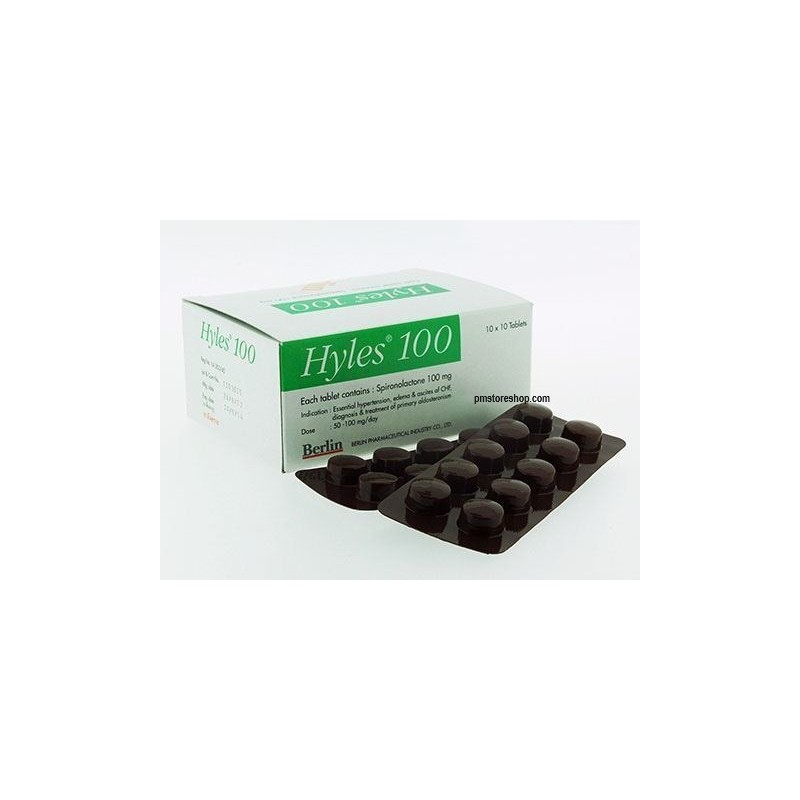



Contains the active ingredient :Spironolactone, which is a type of medicine called a potassium-sparing diuretic. Diuretics are sometimes referred to as '‘water table'ts’
Spironolactone-works by blocking the actions of a-hormone in the body called aldosterone. This-hormone is produced by glands found above the kidneys called the adrenal glands. Aldosterone acts in the kidneys, where it is involved in controlling the balance of salt and water in the body.
Blocking the action of aldosterone causes the kidneys to increase the amount of salts such as sodium that they filter out of the blood and into the urine. When these salts are filtered out of the blood by the kidneys, water is also drawn alongside.
Spironolactone-therefore increases the amount of water that is drawn out of the blood and into the urine. This helps excess fluid to be removed from the body.
There are many conditions that can lead to an accumulation of fluid in the body (oedema). These include heart failure (where the fluid may build up in the lungs, causing breathlessness, or the ankles, causing swollen ankles), liver cirrhosis (where fluid may build up in the abdominal cavity, causing a swollen abdomen) and certain types of kidney disease. Spironolactone-is used to remove excess fluid associated with these conditions and thus relieve the related symptoms.
Most other diuretics cause the amount of potassium in the blood to drop.
Spironolactone-doesn't have this effect, and so is called a 'potassium-sparing' diuretic. It is usually used in combination with other diuretics to increase the removal of fluid from the body, while preventing potassium levels from falling too low.
Spironolactone-is also used in the treatment of a condition called Conn's syndrome, in which there is excess production of aldosterone by the adrenal glands. By opposing the action of aldosterone, spironolactone-relieves the symptoms of this syndrome, which include fluid retention, high blood-pressure and low levels of potassium in the blood.
What is it used for?
Congestive heart failure.
Liver cirrhosis where there is associated fluid retention (oedema) and collection of fluid in the abdominal cavity (ascites).
Progressively worsening fluid accumulation in the abdominal cavity (malignant ascites).
A kidney disorder called nephrotic syndrome, in which there is-inflammation in the kidneys that results in too much fluid in the body, causing swelling, weight gain and high blood-pressure.
Syndrome in which there is excess production of aldosterone by the adrenal glands (primary hyperaldosteronism or Conn's syndrome).
Size: 2 boxes = 200 tablets